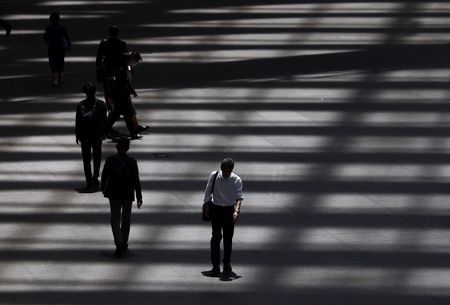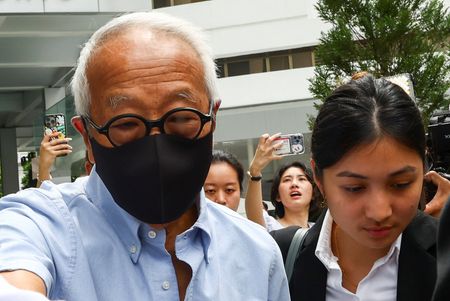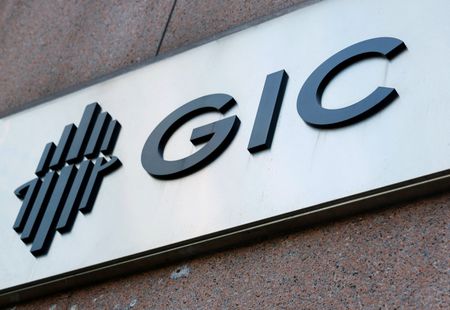By Makiko Yamazaki
TOKYO (Reuters) -A Japanese Labour Ministry panel on Monday proposed a 6% increase in the national average minimum wage for this fiscal year, the biggest such jump since at least 2002, as the government scrambles to sustain wage-driven economic growth.
Achieving real wage growth has become a top policy priority for Japan, as persistent inflation continues to squeeze households.
Prime Minister Shigeru Ishiba’s ruling coalition has lost its majority in both houses of parliament in recent elections, highlighting growing frustration with the government’s response.
The proposed hike would raise the average minimum wage to 1,118 yen ($7.57) per hour, a labour ministry official said, surpassing last year’s 5% increase and marking the largest rise since the current system was introduced 23 years ago.
Ishiba pledged last year to make “untiring efforts” to raise the average minimum wage by 42% to 1,500 yen per hour by the end of the decade, bringing forward the target from the original mid-2030s goal set by the previous administration.
Higher minimum wages carry significant implications for Japan’s wage trajectory, especially given that the proportion of workers affected by minimum wage revisions is relatively high compared to other developed economies.
However, steep wage hikes pose risks for small businesses, which employ about 70% of Japan’s workforce, as these firms already allocate a larger share of profits to wages than their larger counterparts and may struggle to absorb further increases.
Japanese companies agreed to raise wages by an average 5.25% this year, their biggest pay hike in 34 years and the third straight year of robust growth as they grapple with severe labour shortages and seek to shield workers from inflation.
The wage outlook is among key factors the Bank of Japan will scrutinise in deciding whether to raise the interest rate again.
Unlike other major economies, Japan’s inflation-adjusted real interest rates remain deeply negative due to the slow pace at which the BOJ rolled back a decade-long, massive stimulus.
($1 = 147.7600 yen)
(Reporting by Makiko Yamazaki;Editing by Helen Popper)










